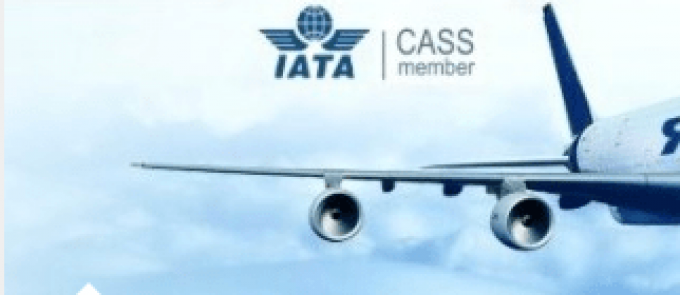Agents not compliant with dangerous goods training rules will be struck-off, warns IATA
Forwarder associations are warning members that they must upload their dangerous goods certificates immediately, or ...
TFII: SOLID AS USUALMAERSK: WEAKENINGF: FALLING OFF A CLIFFAAPL: 'BOTTLENECK IN MAINLAND CHINA'AAPL: CHINA TRENDSDHL: GROWTH CAPEXR: ANOTHER SOLID DELIVERYMFT: HERE COMES THE FALLDSV: LOOK AT SCHENKER PERFORMANCEUPS: A WAVE OF DOWNGRADES DSV: BARGAIN BINKNX: EARNINGS OUTODFL: RISING AND FALLING AND THEN RISING
TFII: SOLID AS USUALMAERSK: WEAKENINGF: FALLING OFF A CLIFFAAPL: 'BOTTLENECK IN MAINLAND CHINA'AAPL: CHINA TRENDSDHL: GROWTH CAPEXR: ANOTHER SOLID DELIVERYMFT: HERE COMES THE FALLDSV: LOOK AT SCHENKER PERFORMANCEUPS: A WAVE OF DOWNGRADES DSV: BARGAIN BINKNX: EARNINGS OUTODFL: RISING AND FALLING AND THEN RISING

In a blow to IATA, the future of CASS, its payments system, is in doubt after PayCargo announced this morning that it was going global and adding export payments to its platform.
And CASS users have admitted they were looking for alternatives.
Ambitious PayCargo, which received $130m in Series C funding in June led by Blackstone Growth, plans to be the largest payment system in the world, it said this morning.
It is expanding into more countries, including Australia, Vietnam, Singapore, South Korea and Japan. It currently has 55,000 users across all modes of transport, and plans to “grow significantly over the next few years”.
Senior advisor Mike White said: “We will be making acquisitions which will triple the size of the company in the next few months.”
PayCargo has so far focused on import payments in air cargo, but it is now in talks with several carriers to begin export payments as well.
“We are changing the way the current business is being done,” Mr White told The Loadstar this morning at IATA’s WCS event in London.
“We have dynamic pricing and dynamic billing. We will provide more efficiencies to airlines. And we can take over accounting functions.
“Customers will have one platform globally, with one view, regardless of mode. And airlines are ready.”
The news will come as a blow to IATA, which has been developing its CASS 2.0 platform. However, sources have indicated that the transformation has been challenging.
PayCargo did not deny it is stepping into that space.
“CASS has been, and will be, with us for some time,” said Mr White, who worked for IATA companies for 12 years, latterly as president of CNS where he ran CASS operations in the US.
“But CASS is not flexible, and it’s not what the market desires. It’s up to IATA to develop what the users want. You have to listen to what the customers want, and if IATA can do that, great. But we are multimodal and CASS isn’t.
“We would rather have partnered with IATA, but they wanted to continue on their path.
“CASS 2.0 has some enhancements, but it must follow IATA resolutions. The airliner members have to decide what to do, and what is best for them as businesses.
“We are here to help carriers. Airlines get their money faster with us; we have next-day payments. We are API-capable, with an option for invoicing; we have lines of credit – CASS can’t do that. We offer more.”
Indeed, frustration with CASS is growing among the industry. Several sources who use it have told The Loadstar it is ‘not fit for purpose’ for their business, with payments too slow and the platform inflexible.
However, PayCargo is not the only competitor. One group of CASS users is thought to be developing a new payment system independently, and are hoping to move off the CASS platform.
While IATA makes no money directly from CASS, it does sell very pricey data. CargoiS, based on CASS numbers is a core revenue stream for the commercially focused association. If airlines step away from CASS, the CargoiS data will become increasingly irrelevant.
PayCargo currently has 42 airlines in its system, including several of the majors, and wants to grow more in China, said Mr White.
“We are there with the US to EU, but we now want to grow in key markets and hubs around the world,” he added. “IATA doesn’t cover some parts of the world. I think we will do well in India, where IATA has difficult relations with forwarders.”
By the end of 2024, he says, PayCargo expects to grow its market share to between 40% and 50%.
Comment on this article